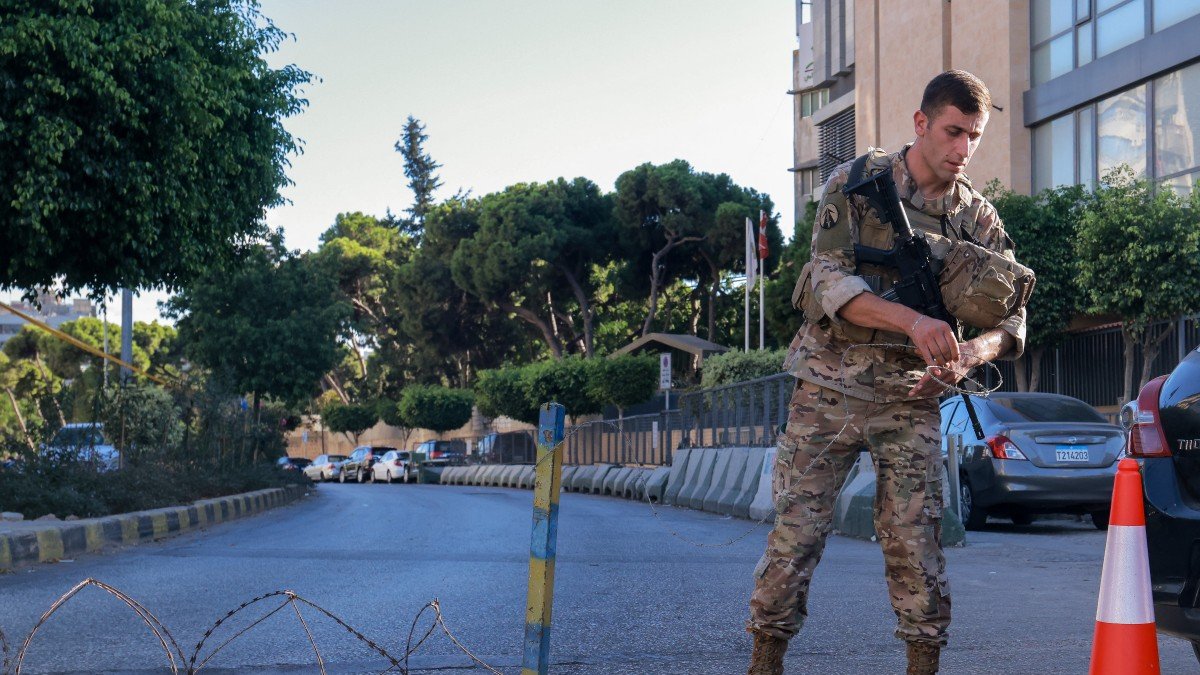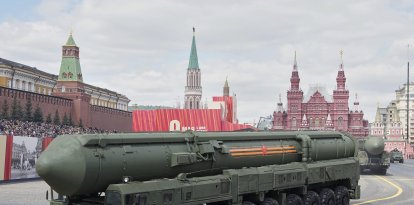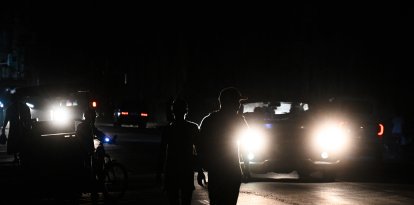What were the devices used by Hezbollah terrorists in Lebanon and Syria and how did they explode?
Thousands of members of the Islamist organization were injured and nine were killed after their pagers exploded. The Iranian ambassador to Lebanon was also injured by one of the explosions.

A Lebanese soldier blocks an access to a Beirut suburb after the blasts.
Lebanese media and foreign news agencies reported Tuesday that at least 4,000 Hezbollah terrorists were injured and nine were killed in Lebanon and Syria after pagers that they were carrying suddenly exploded.
Among the injured was Iranian Ambassador to Lebanon Mojtaba Amani, Iranian media reported. However, it was unclear whether the ambassador was near someone who had one of the devices or whether he was carrying one himself.
In addition, a Hezbollah member, the son of Ali Ammar, a parliamentarian belonging to the terrorist organization, has been killed by a pager explosion, Reuters reported.
While no one has claimed responsibility for the attack, it is possible that it was the work of Israel's intelligence services.
Lo del Ejército de Israel es impresionante
— Arturo Villegas (@ArturoVillegasQ) September 17, 2024
La inteligencia israelí logró intervenir los beeper de todos los miembros del grupo terrorista Hezbollah, hicieron que sus baterías se sobrecalentaran y explotaran en los bolsillos de los criminales.
Según los reportes al menos 1200… pic.twitter.com/vSuxM5ZxO5
What is a pager?
The device in question dominated mobile communication before the age of smartphones and social media.
Although the first pager was developed in 1949 by Motorola, its use became popular in the 1970s and 1980s.
Although at the beginning they were relatively large and expensive, they became smaller and more affordable over time, and their use became more widespread.
How do pagers work?
Pagers were usually carried in a pocket or clipped to a belt. If someone wanted to contact the owner of the device, they had to call a center, where they were attended by an operator, and leave a message and a phone number. From that center, the message was sent to the destination pager, which beeped and displayed the message on a small screen.
Some of the main advantages of pagers were related to the immediacy of messages, low battery consumption, high durability, small size and affordability compared to cell phones at the time.
However, it had some disadvantages, such as one-way communication, which forced the receiver of the message to look for a phone in order to reply. In addition, messages were limited in length and the device depended on a dedicated network and service operators.
How did the explosions occur?
Most pagers used alkaline or rechargeable lithium batteries that needed to be replaced from time to time.
While in rare cases defective batteries or batteries that were not used properly could cause overheating, no explosions or major hazards related to pager use have been reported.
Despite the above, Amer Tabesh, a communications consultant, stated in the Lebanese newspaper An-Nahar that Hezbollah uses pagers to transmit a limited number of "codes" and encrypted messages.
The Wall Street Journal, meanwhile, quoted a Hezbollah source as suggesting that a "malicious software" may have caused the pagers to explode due to overheating. And he added that several members of the terrorist group disposed of the devices before they exploded because they felt they had begun to heat up.
Hamas, Houthis and Iran targeted Israel and showed solidarity with Hezbollah terrorists
The Palestinian Islamist group Hamas condemned in a statement "the Zionist terrorist aggression" against "Lebanese citizens." The fundamentalist organization, which committed the Oct. 7 massacre in Israel, accused the Jewish state of perpetrating an attack that does not distinguish "between resistance fighters and civilians."
Hamas also thanked Hezbollah for its "struggle," its "sacrifices" and "support for our Palestinian people in Gaza."
The Houthis, the pro-Iranian terrorist group in Yemen, also repudiated what they called "a violation of Lebanese sovereignty" by Israel.
The Yemeni terrorist organization also expressed confidence that Hezbollah will make Israel pay "a heavy price" for any escalation it carries out against Lebanon.
Abbas Aragchi, Iranian foreign minister, spoke by telephone with his Lebanese counterpart Abdallah Bou Habib, to whom he expressed his solidarity for the dead and wounded in Lebanon and Syria.
The official also accused Israel of perpetrating the attacks and offered assistance to the Lebanese minister in treating the wounded, Iranian news agency IRNA reported.
The Biden administration claims it 'was not aware of the operation'
The United States "was not aware of this operation and was not involved" in the explosions, said Matthew Miller, spokesman for the U.S. State Department. He added that the government "still gathering information" about the incident in Lebanon.
The official did not confirm that Israel was behind the attack.
Matthew also called on Iran to not escalate tensions in the region and to avoid carrying out any retaliation.

























